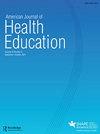使用整体健康教育和共享医疗预约护理模式减少退伍军人对阿片类药物的依赖
IF 0.8
Q4 PUBLIC, ENVIRONMENTAL & OCCUPATIONAL HEALTH
引用次数: 0
摘要
背景:减少阿片类药物在慢性疼痛治疗中的依赖可能最好由跨学科团队来完成。共享医疗预约(sma)是跨学科团队与患者群体合作提供健康教育和临床护理的一种形式。全健康(WH)模式是一种新兴的框架,通过这种框架,护理团队与患者合作,以实现共同的目标,重点是自我保健和治疗方式。目的评估在共享医疗预约(SMA)框架下,WH教育干预对慢性疼痛和长期阿片类药物使用患者的影响。结果86名参与者的回顾性图表回顾显示,在12个月和24个月时阿片类药物明显减少。SMA组阿片类药物的减少率超过了宿主或国家VA队列的下降率。整体疼痛感没有增加,但患者满意度和安全性指数有所改善。干预结果表明,在SMA中WH教育模式是帮助患者减少长期阿片类药物依赖的一种方法。翻译成健康教育实践:训练有素的整体健康教练/教育专家是实施WHSMA护理模式和行为改变促进者的关键人员,从而改善健康结果。本文通过SHAPE美国在线研究所(SAOI) http://portal.shapeamerica.org/trn-Webinars提供了一个AJHE自学测验本文章由计算机程序翻译,如有差异,请以英文原文为准。
Reducing Opioid Reliance in Veterans Using a Whole Health Education and Shared Medical Appointment Care Model
ABSTRACT Background Reducing opioid reliance in chronic pain treatment may best be accomplished with interdisciplinary teams. Shared Medical Appointments (SMAs) are one format whereby an interdisciplinary team partners with groups of patients to provide health education and clinical care. The Whole Health (WH) model is an emerging framework whereby the care team partners with the patient to reach shared goals with emphasis on self-care and healing modalities. Purpose Assess the impact of a WH Education intervention in patients with chronic pain and long-term opioid use within the framework of Shared Medical Appointment (SMA). Results Retrospective chart review of 86 participants indicated significant opioid reduction at 12 and 24 months. The rate of opioid reduction in the SMA group surpassed the rate of decline of the host or national VA cohorts. Overall pain perception did not increase while patient satisfaction and safety indices improved. Discussion Results of the intervention suggest that a WH education model in a SMA is one approach to help patients reduce long-term opioid reliance. Translation to Health Education Practice: Trained Whole Health Coaches/Education Specialists are key personnel in the implementation of the WHSMA model of care and facilitators of behavioral change that results in improved wellness outcomes. A AJHE Self-Study quiz is online for this article via the SHAPE America Online Institute (SAOI) http://portal.shapeamerica.org/trn-Webinars
求助全文
通过发布文献求助,成功后即可免费获取论文全文。
去求助
来源期刊

American Journal of Health Education
PUBLIC, ENVIRONMENTAL & OCCUPATIONAL HEALTH-
CiteScore
1.70
自引率
10.00%
发文量
36
期刊介绍:
AJHE is sponsored by the American Association for Health Education of the American Alliance for Health, Physical Education, Recreation and Dance. The mission of the American Association for Health Education(AAHE) is to advance the profession by serving health educators and others who strive to promote the health of all people through education and other systematic strategies.AAHE addresses the following priorities •Develop and promulgate standards, resources and services regarding health education to professionals and non-professionals •Foster the development of national research priorities in health education and promotion. Provide mechanisms for the translation and interaction between theory, research and practice.
 求助内容:
求助内容: 应助结果提醒方式:
应助结果提醒方式:


